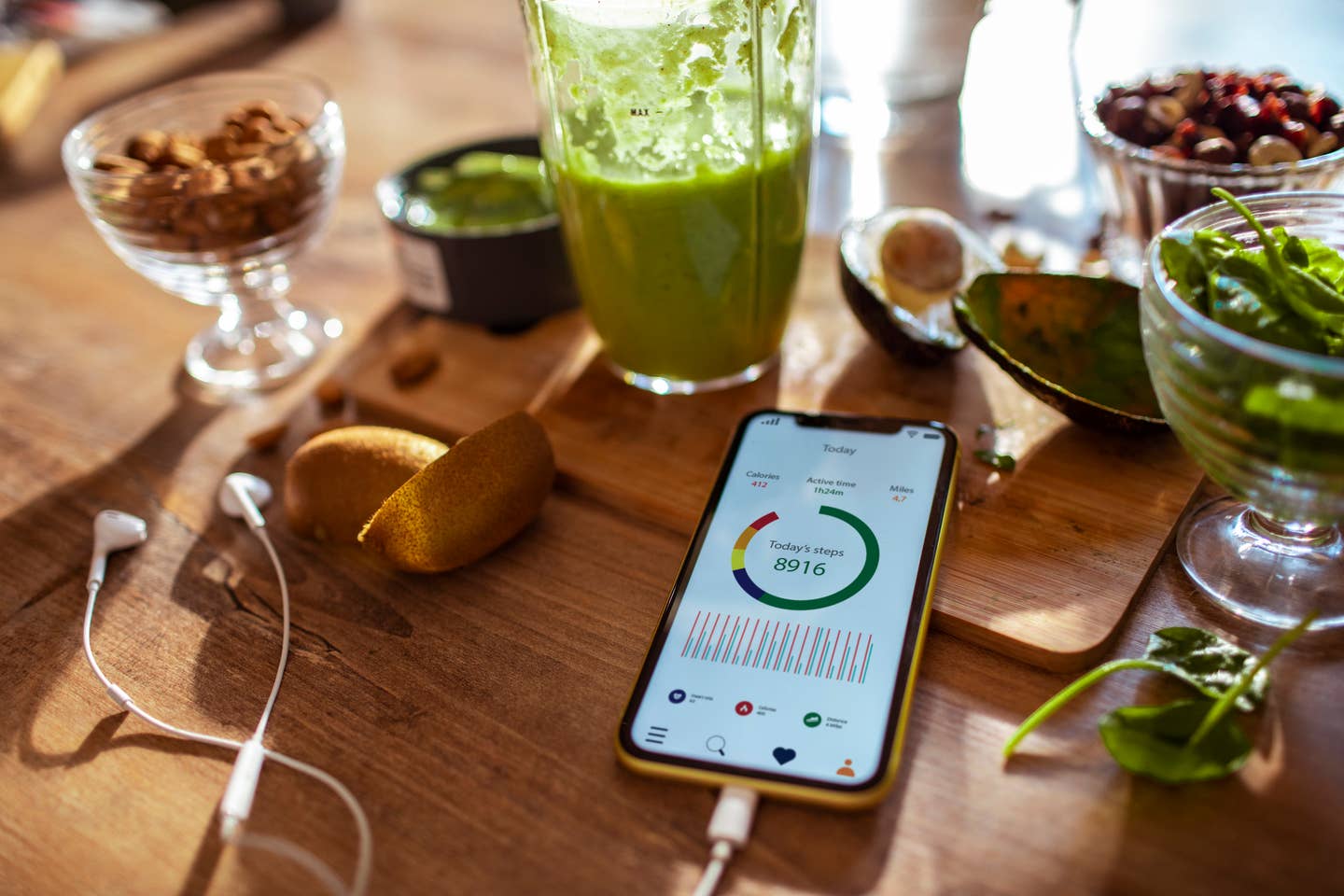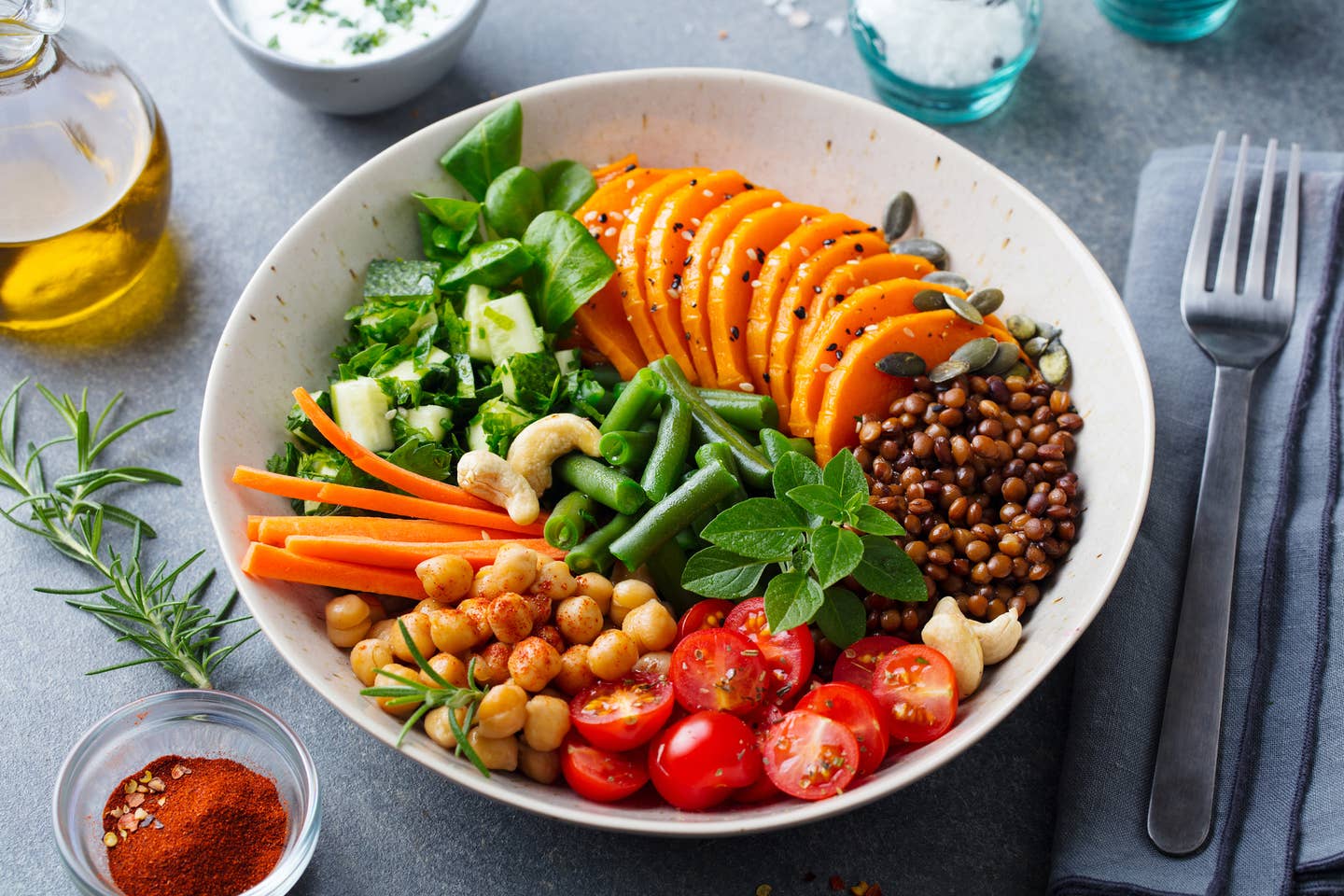
What Is Proffee? Can It Help You Lose Weight? Here’s the Scoop
There's a new trend taking over TikTok and it's got everyone brewing up a new concoction called Proffee, which is a combination of protein powder and coffee (usually cold brew). Coffee has been known to speed up metabolism and help you burn fat when your body is at a calorie deficit, and help you crush a workout. Meanwhile, protein has been shown to help your body feel full, and also build lean muscle that will burn more calories at rest. So it makes perfect sense that someone got the smart idea to add protein powder to their coffee and call it Proffee. Now the Proffee trend is exploding on TikTok and media outlets are covering it like this is the solution – finally – to boosting your metabolism, burning fat faster, and losing weight.
While the idea that Proffee can help you burn fat and lose weight may be rooted in truth, or at least backed up by solid scientific findings based on reliable peer-reviewed research, it doesn't come without a catch. When you add two positives, you don't necessarily end up with a double positive. In math, a double positive is a negative. Here, we looked closer at the research and found that it comes with a double shot of caveats that are worth considering before you add protein powder to your next cup of joe. Here’s the long-playing story and the one that may not fit on TikTok but will inform you before you try this silver bullet for magical shrinkage.
Keep in mind that coffee is already a super drink that has been extensively studied and shown to help promote weight loss, fat burning, and raise metabolism, even before you add a scoop of protein powder. Coffee is full of healthy antioxidants and it has even been shown to mobilize fat cells, which if this takes place in the bloodstream when you are at a calorie deficit, will prompt your body to burn fat for fuel, according to a scientific study.
Scientific Fact 1: Coffee speeds up resting metabolic rate. Coffee does speed up metabolic rate and increase fat burning in the body, studies have shown. However, you have to drink your coffee black, with no sugar, calorie-filled creamer, or with any other calories that can counteract the effect of caffeine as it works on a cellular level. Coffee is full of antioxidants that are great for you, but adding syrupy sweetness or even dairy to your latte is not going to help if your goal is the shed pounds.
Scientific Fact 2. Coffee promotes weight loss. Respected researchers at Harvard's T.H. Chan School of Public Health found that if you drink four or more cups of black coffee a day it appears to help you shed a modest amount of extra pounds, but it doesn’t work for obese patients and the effects may be detrimental to anyone who finds that much caffeine an anxiety stoker. Plus drinking that much can disrupt sleep which can cause appetite to soar, thereby undermining your best efforts.
“Avoid drinking caffeinated coffee after 3 p.m.,” suggests registered dietitian, Lauren Armstrong. “Studies have shown that the caffeine from coffee can impact your sleep up to six hours after drinking it which results in you missing out on an hour or more of sleep.”
Scientific Fact 3. Caffeine works best when taken after a meal, not before. Here’s a crazy study: The University of Bath researchers looked at what happened when you drink coffee before or after breakfast, and especially when you've had a terrible night's sleep. Coffee after breakfast appears to speed up metabolism, but drinking coffee before you eat, especially after a bad night's sleep, appears to raise blood sugar, up to 50 percent more than if you had just eaten the calories without the java, a study found. So this makes sense since you can think of coffee as an amplifier: It stokes what's happening in the body, boosts cell function, even if that means boosting your blood sugar surges.
Scientific Fact 4: Caffeine boosts sports performance. Heading to the gym, or doing any aerobic-style workout, gets boosted by drinking coffee first. These studies have been on male and female athletes given caffeine in advance of aerobic tests and it turns out that caffeine is a powerful performance enhancer. It works to increase your aerobic capacity and help bring more oxygen to your muscles, which makes you feel like a rock star in spin class. But do this in moderation since caffeine also drives up adrenaline levels and you’re already getting your heartbeat up just by pedaling to the music.
Scientific Fact 5. High-protein diets boost weight loss. First, studies show that protein helps make you feel fuller longer. But high-protein diets are known to help dieters lose weight if they also cut way back on carbs. If a normal carb ratio in the diet is about 60 percent and protein is 30 percent and fat is 10 percent, when dieters switch this around to be more protein, only 10 percent carbs, and the rest fat, they will burn the fat as fuel, which is why keto diets work. You release ketones and the protein allows those to get burned first.
Scientific Fact 6: Most Americans get way more protein than they need in a day. According to studies, Americans eat more food than they need, protein included, like 70 percent more protein than is recommended. So if women need about 46 grams of protein a day (more if they are active) and men need 56 grams (also bump that up to about 70 if you’re a gym-goer or training for an event) then adding protein to your coffee may be redundant.
According to a study called "A high-protein diet for reducing body fat: mechanisms and possible caveats, published in the scholarly journal Nutrition and Metabolism, on the role of protein in weight loss: "General dietary guidelines for adults suggest an acceptable macronutrient distribution range of 45 to 65 percent of total energy from carbohydrates, 20 to 35 percent from fat, and 10 to 35 percent from protein, with a recommended dietary allowance of 46 and 56 grams per day, or 0.8 grams per kilogram of body weight, of protein for females and males, respectively. A diet is therefore considered high in protein if it exceeds 0.8 g/kilograms of body weight or the habitual 15 to 16 percent of total energy." This study adds: To promote satiety and not lower metabolic rate, protein is the most satiating of macronutrients. "An ideal weight loss strategy would promote satiety and maintain basal metabolic rates despite a negative energy balance and reduction in fat-free mass."
So should you try adding protein to coffee for fat burning and weight loss?
The facts are in, but the jury is out. One thing to consider: As with any dietary choice, it often depends on what you would have eaten instead. If you’re adding a single scoop of protein powder to your coffee, then that extra jolt of protein and caffeine may help you lessen your intake of carbs or other morning foods, which you would have had instead. If you skip the bagel or croissant or stay away from Captain Crunch, then this could be a good strategy to get the home fires burning nice and strong, full of protein that can keep you feeling satisfied, and help you recover from a workout.
Bottom line: Don’t believe everything you see on TikTok. Take your protein in small doses, or better yet from the food you eat, in the form of legumes, nuts, seeds, whole grains like quinoa, and vegetables. For a full list of the top vegetables with the most protein per serving, check out this list. Coffee is a stimulant, not a weight loss aid. If you feel jittery or anxious, dial it back. And of course, before you do anything new or to the extreme, check in with your trusted health care provider. As for weight loss? Simple whole foods that are plentiful in season right now are a great place to start.
Still want to try Proffee? Our take: Just don't overdo it. If you are powering up the protein you could end up with well more protein than you need in a day, since most powders contain anywhere from 20 to 25 grams of protein in a serving, which can lead to excess calories (which of course is detrimental to your wellbeing and can undermine your efforts if weight loss is the goal). More protein is not better, and too much can be more than your kidneys can handle. Eat your protein in the form of whole foods. Exercise gently. You'll see results.
More From The Beet






